Datastore requires explicit indexes to be created for each query type when the query scans over more than one property or is an ancestor query. And kinds will certainly be indexed more than once if you have different query types.
For example:
SELECT * FROM RouteDetails
WHERE __key__ HAS ANCESTOR KEY(ParentKind, 'foo')
ORDER BY RouteName ASC
requires an ascending index.
- kind: RouteDetails
ancestor: yes
properties:
- name: RouteName
direction: asc
And
SELECT * FROM RouteDetails
WHERE __key__ HAS ANCESTOR KEY(ParentKind, 'foo')
ORDER BY RouteName DESC
requires a separate descending index.
- kind: RouteDetails
ancestor: yes
properties:
- name: RouteName
direction: desc
https://cloud.google.com/datastore/docs/concepts/indexes
In your case, it appears you are performing an ancestor query with a descending ORDER BY of the RouteName property and adding the suggested index to your index.yaml file should solve the problem for you.
As for the suspected "duplicates", which indexes need to exist depend on the specific queries your application performs.
But if you determine that you have extra unused indexes, the instructions for vacuuming indexes can be found here: https://cloud.google.com/datastore/docs/tools/indexconfig#Datastore_Deleting_unused_indexes

